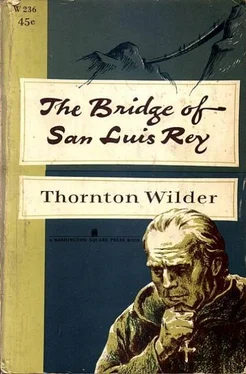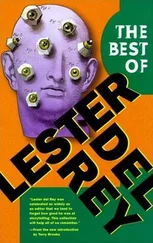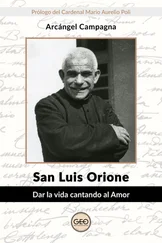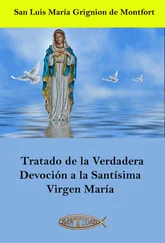There was a pause. A beautiful procession of clouds, like a flock of sheep, was straying up from the sea, slipping up the valleys between the hills. Camila suddenly touched his knee, and her face was like her face twenty years before: “Forgive me, Uncle Pio, for being so bad. Jaime was ill this afternoon. There’s nothing one can do. He lies there, so white and ... so surprised. One must just think of, other things. Uncle Pio, it would be no good if I went back to the theatre. The audiences come for the prose farces. We were foolish to try and keep alive the Old Comedy. Let people read the old plays in books if they choose to. It is not worth while fighting with the crowd.”
“Wonderful Camila, I was not just to you when you were on the stage. It was some foolish pride in me. I grudged you the praise that you deserved. Forgive me. You have always been a very great artist. If you come to see that you are not happy among these people you might think about going to Madrid. You would have a great triumph there. You are still young and beautiful. There will be time later to be called Doña Micaela. We shall be old soon. We shall be dead soon.”
“No, I shall never see Spain. All the world is alike, Madrid or Lima.”
“Oh, if we could go away to some island where the people would know you for yourself. And love you.”
“You are fifty years old and you are still dreaming of such islands, Uncle Pio.”
He bent his head and mumbled: “Of course I love you, Camila, as I always must and more than I can say. To have known you is enough for my whole life. You are a great lady now. And you are rich. There is no longer any way that I can help you. Put I am always ready.”
“How absurd you are,” she said smiling. “You said that as boys say it. You don’t seem to learn as you grow older, Uncle Pio. There is no such thing as that kind of love and that kind of island. It’s in the theatre you find such things.”
He look shamefaced, but unconvinced.
At last she rose and said sadly: “What are we talking about! It is growing cold. I must be going in. You must be resigned. I have no heart for the theatre.” There was a pause. “And for the rest? ... Oh, I do not understand. It is just circumstance. I must be what I must. Do not try to understand either. Don’t think about me, Uncle Pio. Just forgive, that’s all. Just try to forgive.”
She stood still a moment, searching for something deeply felt to say to him. The fast cloud reached the terrace; it was dark; the last stragglers were leaving the gardens. She was thinking of Don Jaime, and of Don Andrés and of himself. She could not find the words. Suddenly she bent down and kissed his fingers and went quickly away. But he sat for a long time in the gathering clouds trembling with happiness and trying to penetrate into the meaning of these things.
Suddenly the news was all over Lima. Doña Micaela Villegas, the lady that used to be Camila the Perichole, had the small-pox. Several hundred other persons had the small pox also, but popular interest and malignity were concentrated upon the actress. A wild hope ran about the town that the beauty would be impaired that had enabled her to despise the class from which she sprang. The news escaped from the sick-room that Camila had become ludicrous in homeliness and the cup of the envious overflowed. As soon as she was able she had herself carried from the city to her villa in the hills; she ordered the sale of her elegant little palace. She returned her jewels to their givers and she sold her fine clothes. The Viceroy, the Archbishop, and the few men at court who had been her sincerest admirers besieged her door still with messages and gifts; the messages were ignored and the gifts were returned without comment. No one but her nurse and maids had been permitted to see her since the commencement of her illness. As an answer to his repeated attempts Don Andrés received a large sum of money from her with a letter compounded of all that is possible in bitterness and pride.
Like all beautiful women who have been brought up amid continual tributes to her beauty she assumed without cynicism that it must necessarily be the basis of anyone’s attachment to herself; henceforth any attention paid to her must spring from a pity full of condescension and faintly perfumed with satisfaction at so complete a reversal. This assumption that she need look for no more devotion now that her beauty had passed proceeded from the fact that she had never realized any love save love as passion. Such love, though it expends itself in generosity and thoughtfulness, though it give birth to visions and to great poetry, remains among the sharpest expressions of self-interest. Not until it has passed through a long servitude, through its own self-hatred, through mockery, through great doubts, can it take its place among the loyalties. Many who have spent a lifetime in it can tell us less of love than the child that lost a dog yesterday. As her friends continued in their efforts to draw her again into society she grew more and more angry and dispatched insulting messages to the city. It was said for a time that she was retiring into religion. But new rumours that all was fury and despair on the little farm, contradicted the old. For those near to her the despair was fearful to behold. She was convinced that her life was over, her life and her children’s. In her hysterical pride she had given back more than she owed and the approach of poverty was added to the loneliness and the gloom of her future. There was nothing left for her to do but to draw out her days in jealous solitude in the center of the little farm that was falling into decay. She brooded for hours upon the joy of her enemies and could be heard striding about her room with strange cries.
Uncle Pio did not allow himself to be discouraged. By dint of making himself useful to the children, by taking a hand in the management of the farm and by discreetly lending her some money he obtained his entrance into the house and even into the presence of its veiled mistress. But even then Camila, convinced in her pride that he pitied her, lashed him with the blade of her tongue and derived some strange comfort from heaping him with sneers. He loved her the more, understanding better than she did herself all the stages in the convalescence of her humiliated spirit. But one day an accident befell that lost him his share in her progress. He pushed open a door.
She thought she had locked it. For just one hour a foolish secret hope had come to her; she wondered whether she could make a paste of chalk and cream to spread upon her face. She who had sneered so often at the befloured grand mothers of the court wondered for a few moments whether she had learned anything on the stage that would aid her now. She thought she had locked the door and with hurried hands and beating heart she laid on the coat, the grotesque pallor, and as she gazed into the mirror and recognized the futility of her attempt she caught the image of Uncle Pio standing in the door amazed. She rose from the chair with a cry and covered her face with her hands.
“Go away. Go away out of my house forever,” she screamed. “I never want to see you again.” In her shame she drove him out with blasphemy and hatred, she pursued him down the corridor and hurled objects down the stairs. She gave her farmer orders that Uncle Pio was forbidden to come into the grounds. But he continued for a week trying to see her again. At last he went back to Lima; he filled in the time as best he could, but he longed to be by her as a boy of eighteen would long. At last he devised a stratagem and returned up into the hills to put it into effect.
One morning before dawn he arose and lay on the ground below her window. He imitated in the darkness the sound of weeping, and, as nearly as he could, of a young girl’s weeping. He continued in this for the whole quarter of an hour. He did not let his voice rise above that degree of loudness which Italian musicians would represent by the direction piano, but he frequently intermitted the sound trusting that if she were asleep it would insinuate itself into her mind as well by duration as by degree. The air was cool and agreeable. The first faint streak of sapphire was appearing behind the peaks and in the east the star of morning was pulsating every moment with a more tender intention. A profound silence wrapped all the farm buildings, only an occasional breeze set all the grasses sighing. Suddenly a lamp was lit in her room and a moment later the shutter was thrown back and a head wrapped in veils leaned far out.
Читать дальше












